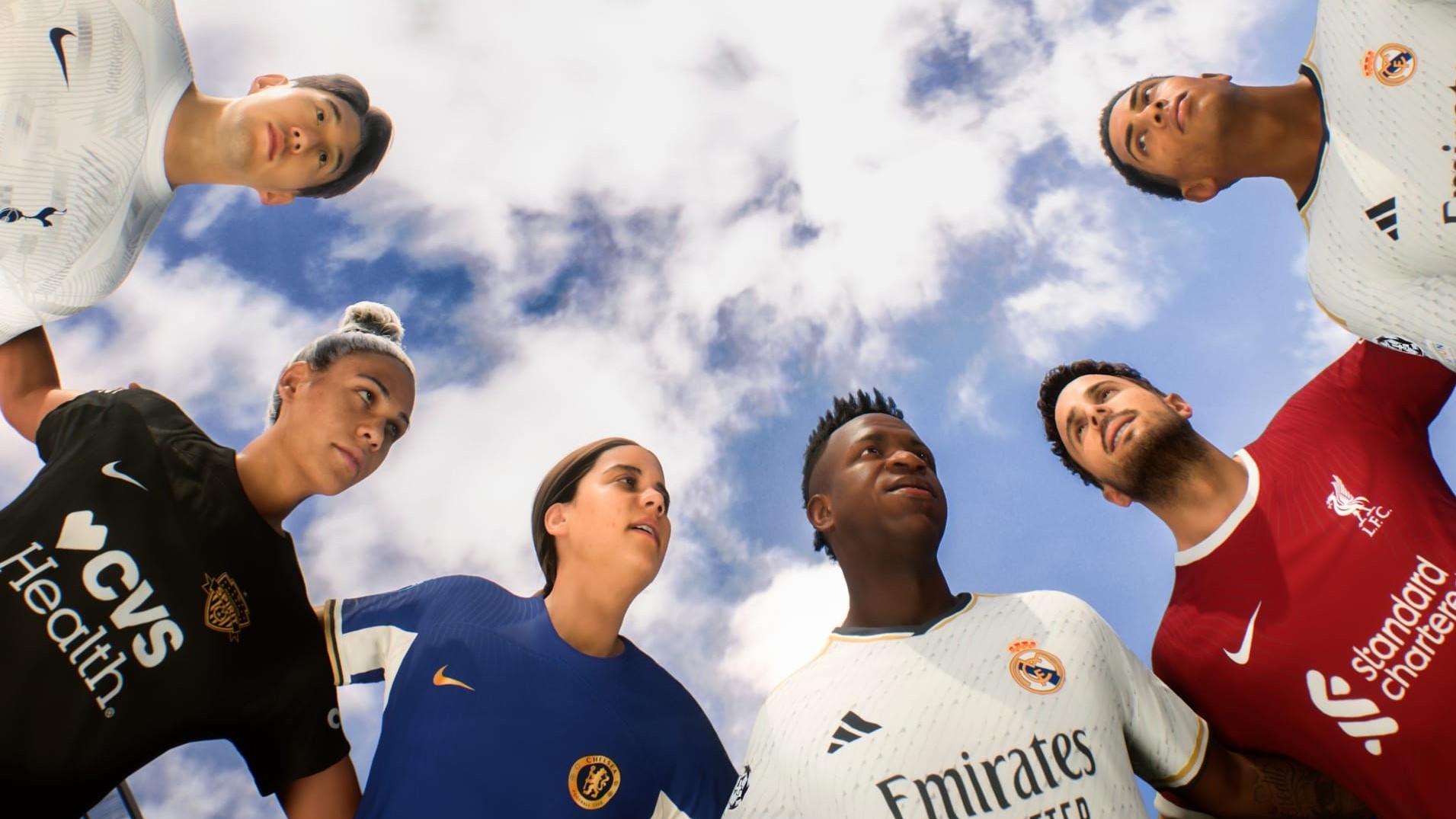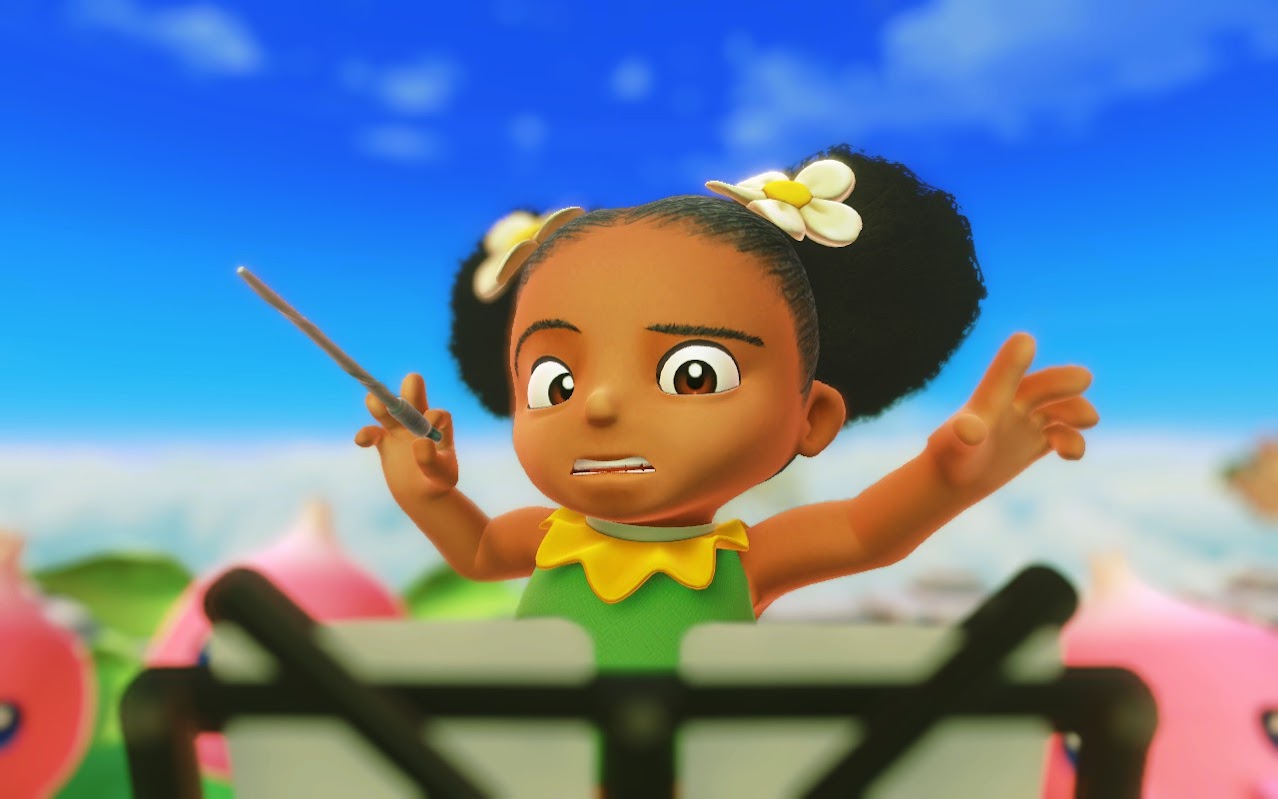EA responds to fan criticism of women players in Ultimate Team by reminding them it's 'fantasy football'
"We want this game [...] to welcome everybody."

EA's big reveal of EA Sports FC took place last week, the first non-FIFA entry in its long-running football series, and aside from some dodgy box art seemed to go down quite well. There's always criticism of a game on this scale, of course, but one big theme EA's been pursuing for years is integrating the womens' game into the experience, and with this game it's introducing women players to its hugely popular Ultimate Team mode.
The decision has led to some pushback from players, based on the fact that female players' stats will be competitive with equally rated male players' (though UT also takes account of things like height). The objection boils down to whether female players could realistically compete with male players, with some fans calling for the game to split men and women into their own UT modes, and some even going full basement dweller and suggesting women players shouldn't be in the mode at all.
"It’s something we really thought deeply about," said John Shepherd, an executive producer at Electronic Arts, in an IGN interview. "We feel we can play a really important role in the growth of that sport in introducing it to all of our fans. We just have this conviction that we believe we want to unite the world around football."
Shepherd goes on to make a basic but extremely good point about the nature of UT. "[Ultimate Team] is a mode where you can build your fantasy team with different nationalities, different leagues, different clubs. And so it felt like a great spot to be able to do that."
It's fantasy football, a concept any football fan has been familiar with long before UT came on the scene, and it's always been about imaginary line-ups and player combinations. So to suddenly turn around and gatekeep the fantasy side of it doesn't make much sense: arguably if there's any mode suitable for mixing the men and women's games, it is this one.
"We want this game and this brand, this club, this ecosystem, to welcome everybody," said Shepard. "In terms of our decision around how we’re integrating women’s football into Ultimate Team, we feel really strongly about that [...] There are other modes of play, such as Kick Off, where it’s more about that club playing together against another club. But Ultimate Team to us is a mode where you can have a mix of players and you can build the best team."
Senior producer Sam Rivera re-emphasised the point that UT is a "fantasy mode [...] You don’t see [Kylian] Mbappe playing with all the Icons. It’s Ultimate Team—fantasy football is what’s happening there."
The biggest gaming news, reviews and hardware deals
Keep up to date with the most important stories and the best deals, as picked by the PC Gamer team.
Even with the integration, male players will retain certain advantages in areas like height and weight, but factors like agility will also come into the equation and EA's goal is clearly to create as level a playing field as possible. "If everything is equal, they play the same way" added Rivera.
The rollout for EA Sports FC continues, and even if it didn't get off to the best start (check out the jankass cover art) it is already clear this is a sporting juggernaut that will be omnipresent across footballing events: including the women's World Cup, which starts today. The first CG trailer for the game didn't go down too well either but let's not fool ourselves, because the simple fact is with eFootball utterly languishing EA Sports FC has no real competition in the virtual sport.
EA is clearly committed to doing right by womens' football, and that can only be a good thing in terms of basic fairness and opening the game up to a wider audience. As for those fans saying they won't buy EA Sports FC because of the UT integration of male and female players… well, maybe they should go outside and kick a ball around.

Rich is a games journalist with 15 years' experience, beginning his career on Edge magazine before working for a wide range of outlets, including Ars Technica, Eurogamer, GamesRadar+, Gamespot, the Guardian, IGN, the New Statesman, Polygon, and Vice. He was the editor of Kotaku UK, the UK arm of Kotaku, for three years before joining PC Gamer. He is the author of a Brief History of Video Games, a full history of the medium, which the Midwest Book Review described as "[a] must-read for serious minded game historians and curious video game connoisseurs alike."

